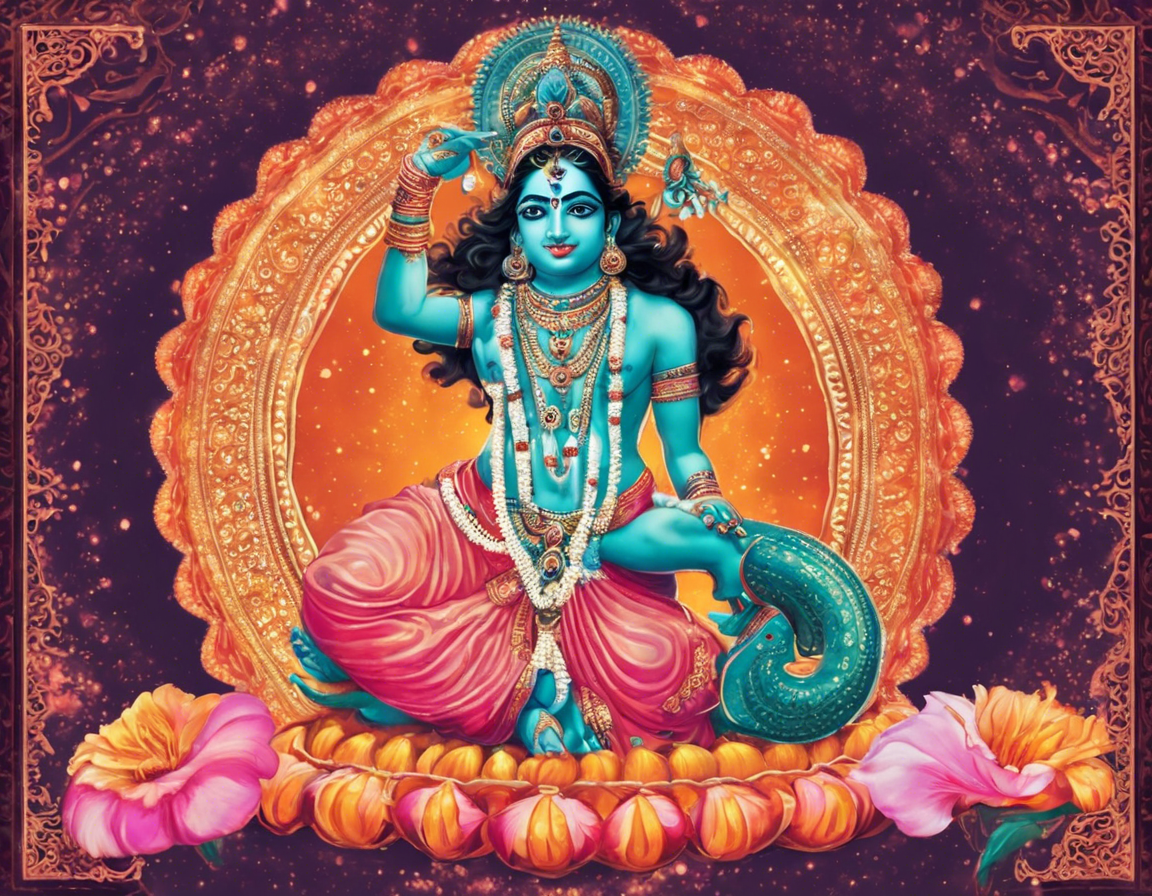In the Vedic tradition, Ekadashi is considered a sacred day dedicated to fasting, prayer, and spiritual practices. Ekadashi occurs twice in a Hindu lunar month, corresponding to the 11th day of the waxing and waning phases of the moon. Observing Ekadashi is believed to have numerous spiritual benefits, including purifying the mind and body, increasing self-discipline, and cultivating devotion to the divine.
In April 2023, there are two Ekadashi dates to be observed. It is essential for practitioners to be aware of these dates to plan their fasting and spiritual activities effectively.
April 2023 Ekadashi Dates:
- Mohini Ekadashi – April 7, 2023 (Friday):
- Mohini Ekadashi, also known as Vaishakha Krishna Ekadashi, falls in the Krishna Paksha (waning phase of the moon) of the Hindu month of Vaishakha. This Ekadashi is dedicated to Lord Vamana, the fifth incarnation of Lord Vishnu.
-
Fasting on Mohini Ekadashi is believed to remove sins, grant liberation, and fulfill wishes. Devotees observe a strict fast and engage in prayers and bhajans to seek the blessings of the Lord.
-
Apara Ekadashi – April 23, 2023 (Sunday):
- Apara Ekadashi, also known as Achala Ekadashi, falls in the Shukla Paksha (waxing phase of the moon) of the Hindu month of Jyeshtha. This Ekadashi is dedicated to Lord Narayana.
- Observing Apara Ekadashi is believed to wash away sins, bestow blessings, and lead to spiritual advancement. Devotees participate in rituals, donate to the needy, and recite sacred texts on this day.
Benefits of Observing Ekadashi:
-
Spiritual Cleansing: Fasting on Ekadashi is believed to purify the mind, body, and soul, enabling spiritual growth and self-purification.
-
Detoxification: The practice of abstaining from grains and lentils on Ekadashi is thought to detoxify the body and promote overall well-being.
-
Discipline: Following the discipline of fasting on Ekadashi helps in developing self-control, restraint, and a sense of detachment from worldly desires.
-
Devotional Practice: Ekadashi is a time for increased prayer, meditation, chanting of mantras, and devotional activities to deepen one’s connection with the divine.
-
Blessings of the Divine: It is believed that observing Ekadashi with sincerity and devotion can evoke the blessings and grace of the divine, leading to spiritual upliftment.
How to Observe Ekadashi:
Observing Ekadashi involves certain rituals and practices that devotees follow to make the most of this auspicious day:
-
Fasting: On Ekadashi, devotees abstain from consuming grains, lentils, and certain vegetables. Some may observe a complete fast without food or water, while others may opt for a partial fast.
-
Sankalpa: Before beginning the fast, one takes a vow, known as Sankalpa, expressing one’s intent to observe Ekadashi with dedication and devotion.
-
Prayer and Meditation: Devotees spend time in prayer, meditation, and chanting of mantras to focus the mind and invoke spiritual energies.
-
Charity: Giving alms, donating food, and helping the needy are considered virtuous acts on Ekadashi that bring blessings and merit.
-
Visiting Temples: Visiting temples dedicated to Lord Vishnu, especially on Ekadashi, is believed to be auspicious and beneficial for spiritual progress.
FAQs (Frequently Asked Questions) about Observing Ekadashi:
Q1: What are the benefits of fasting on Ekadashi?
A: Fasting on Ekadashi is believed to purify the mind and body, promote self-discipline, detoxify the system, and attract spiritual blessings.
Q2: Can pregnant women observe Ekadashi fasts?
A: Pregnant women are often exempt from fasting on Ekadashi as it is essential for them to maintain their health and well-being during pregnancy.
Q3: Can one drink water while fasting on Ekadashi?
A: Some people observe a complete fast without water on Ekadashi, while others opt for a partial fast that allows the consumption of water and select fruits.
Q4: How can one break the fast at the end of Ekadashi?
A: The fast is typically broken at an auspicious time, known as Parana, the next day after Ekadashi. Consuming fruits, nuts, water, and a simple meal is recommended.
Q5: Are there specific prayers or mantras to be chanted on Ekadashi?
A: Chanting Vishnu Sahasranama, the 1000 names of Lord Vishnu, or the Hare Krishna Maha Mantra are popular practices on Ekadashi for invoking divine blessings.
Q6: Can children participate in Ekadashi fasting?
A: Fasting on Ekadashi is a personal choice and children can gradually be introduced to the practice based on their capability and health considerations.
Q7: Is it necessary to visit a temple on Ekadashi?
A: While visiting a temple on Ekadashi is considered auspicious, one can also engage in personal prayers, meditation, and devotional practices at home.
Q8: How does Ekadashi differ from other fasting days in Hindu tradition?
A: Ekadashi holds significant spiritual importance in the Hindu calendar due to its association with Lord Vishnu and the special blessings it is believed to bestow on devotees.
Q9: Can Ekadashi fasting be customized based on individual health conditions?
A: Yes, those with health conditions that prohibit strict fasting can customize their observance of Ekadashi by consulting with a healthcare provider and following a modified diet.
Q10: Is it necessary to fast for the entire day on Ekadashi?
A: While some devotees fast from sunrise to sunrise on Ekadashi, others may choose to fast from sunrise to sunset or adopt a partial fasting approach based on their capacity and circumstances.
In conclusion, observing Ekadashi in April 2023 provides an opportunity for spiritual growth, self-discipline, and connection with the divine. By following the prescribed rituals, fasting sincerely, and engaging in devotional practices, devotees can experience the transformative power of this sacred day in the Hindu calendar.

